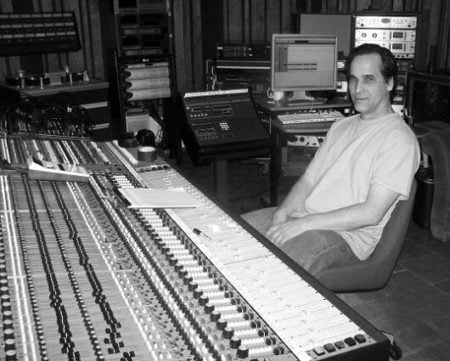
Recording Connection mentor Mark Scobra
In a career that spans decades, Mark Scobra has worked across numerous genres, from rock, to hip hop to everything in-between. He’s toured with some of the world’s biggest bands, taught music production at the Hawthorn Media Center for legendary manager Leila Steinberg, and he’s been entrenched in the underground L.A. hip hop scene, producing and recording for artists like Micky Avalon, The Shape Shifters, and Existereo, to name just a few.
Mark is dedicated to empowering serious young artists to get the confidence, skills, and awareness it takes to find their way in today’s music industry. Besides the work he does as a mentor for Recording Connection, Mark produces music and audio for film and television and serves as audio director for Noize TV. We recently caught up with Mark who shared a number of insights on songwriting and tapping into one’s soul so read on!
So Mark, what are the basics you wish people knew about songwriting?
“I wish people really understood arrangements, the power of literacy and the power of words. We live in a fairly monosyllabic society of people that are highly insecure and propagandized but our words are very, very, very powerful.
What I try to tell my students is just write, write, write, write, write…I teach them to write without editing themselves at first, without going “Oh, I’m horrible.” The fact is, we all write horrible stuff. Most of it is horrible. But if you write, write, write, write, write, write, write, write, write, write, write, you’ll be surprised every once in a while, you’ll write something that’s actually halfway decent.
What I emphasize is daily, daily, daily practice, and the more you do that, all the excuses start to melt away. “Oh, I’m too cool.” “Oh, I’ve got to do this.” “Oh, I’m not good enough.” You know? That’s just the negative mind telling you that you can’t do it, basically. But just blind persistence is what it takes.”
When writing songs, do you start with a lyric and have a melody in mind to go with it? Or do you write lyrics and melody independent of one another?
“I’d really much prefer lyrical music…Because in music it all has to be a story. As Hans Zimmer says “It’s all story.” If you listen to a good song, the words will go for a little bit. Then you’ll hear, like, another sound pick up, and then it gets down into another word. And the story just has to continue to go along slightly faster than what you’d want to hear it, [to] kind of keep you on your toes. The song should be over with before you know it. Then they want more… And the more you’re into the egotistical stuff and all that, the less good your song is going to be. Aim for something in yourself that’s beyond the ego.”
Let’s say I’m a student and first-time songwriter in session with you. I’m going to write a song. What would you tell me to do?
“Get out a piece of notebook paper. Don’t stop until I tell you to.”
Okay, so once we have the lyrics how do you go about incorporating the music?
“In word structures we can break it into syllables. Like, you could look at one word…say “love” is a beat, you know? “Be love” is a duplet, that’s two beats. So, if you look at what’s going on, you can kind of take those little pulses and craft something. And then if love comes in on the one beat, then we’ve got maybe a kick-drum right there, and we start reinforcing it with percussion. Then we have to take the words, and then we change the notes along with it. Try to keep it as simple at first…trust me, it’s going to get complicated quick.
Try to keep it direct, and try not to over-embellish or brag. Just keep the story nice and clean. You don’t need much a lot of times. So the first thing I would do is just make them write. And if they wait more than three seconds to write another word, you know, they have to write another page or something. Just write, write, write, write, write… then once you get all of those illusions of the mind and stuff out of the way, your soul will come through and say something profound and touching and meaningful.”
Once we’ve got the lyrics and we’ve got the skeleton, what would you do next?
“I’ll look for just the simplest little hook, and then that will be, like, the chorus section. Maybe that’ll be the pre-chorus section that’ll work up to even a bigger triumphant chorus. Or maybe that’ll be the chorus section. Look for hooks. Write a bunch of mindless stuff and look for a hook.”
So pre-chorus and chorus, can you break that down for us a little bit?
“And a pre-chorus is just simply something that bridges into the chorus, or gives you the sensation that it’s not going to the chorus, and then it doesn’t go to the chorus, but it comes back and then it goes to the chorus, teasing or something like that, because teasing is a part of my writing style…There are no rules in music, but when the pre-chorus comes in, it should typically have an expectant feel. You know, like something’s going to happen.”
So what makes a chorus a chorus?
“A chorus is typically something that people can sing along to because you want to engage intimately with your listener…The chorus is the most dynamic, widest, and typically…but not always, but the loudest part of the song. And you usually bring the low-end in on the chorus too…The chorus is usually what the song’s titled. It’s the most important part of the song in the end. You know, don’t bore us, just skip to the chorus. The chorus is the thesis statement of the song.”
And, as James Brown says, “Take it to the bridge.”
“In standard songwriting, I would say the basic dynamic of a song is verse/chorus/verse/chorus/verse/chorus. The thing is, if you just do that, it’s just too boring. So if the song is like one big story, the bridge is kind of where you remind the listener that there’s a big world out there as well, and they can interpolate more universal energies into the context of just the verse and the chorus. It’s a time to take a break sometimes. And it’s usually something that’s pretty drastically different to the chorus. So that when you go back into the chorus, there’s a huge, huge contrast between the bridge and the chorus, which should make the chorus even more profound and bigger if we do our jobs well.
So the bridge is super important. I don’t like to hear any songs without bridges…you can change the key a lot in the bridge, or the rhythm and stuff…It really opens up the song to all kinds of nutrients and new kinds of things.”
So the bridge is like the sonic palate cleanser, right? The listener goes through the bridge and when they’re back to the chorus their ears are reinvigorated by the sonic contrast you’ve created.
“Absolutely.”
So do you think songwriting on Ableton is a pretty intuitive process?
“I do the Pro Tools Advanced course but my focus is on Ableton because it’s my dream to train students to sit down and make a beautiful piece of music right there. I find Ableton Live just to be the best digital audio work station today where you can sit down and make a whole piece of music that’s fresh and exciting and looks to the future…You don’t need a bunch of stuff, outboard gear, any of that. You can just sit down and make a world-class song right there, right on the spot. No excuses. And for me, showing that to students is very empowering.”
In your opinion, how can students make the most of the opportunity while they’re in the program?
“It’s just best that they just work as hard as they can to bring as much excellence as they can to the situation. So don’t miss any classes, study hard, and under-promise and over-deliver. Just work, work, work, work, work. There’s no time to fool around. It’s a very intense business…No question is a dumb question. Ask as many questions as you can. Always offer to help out and learn as much as you can. Take notes as much as you can.”
Do you think it’s beneficial for students to be working on their own songs while they go through Recording Connection?
“Absolutely. Never deny your spiritual artistic self to any convening force on earth. You have to be all-in with your soul.”
* * * * *
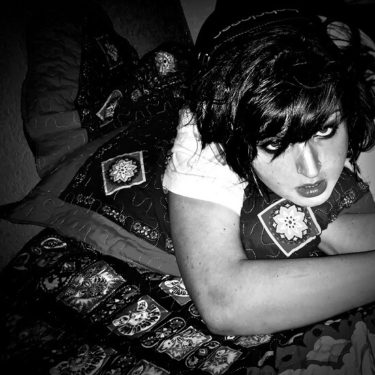
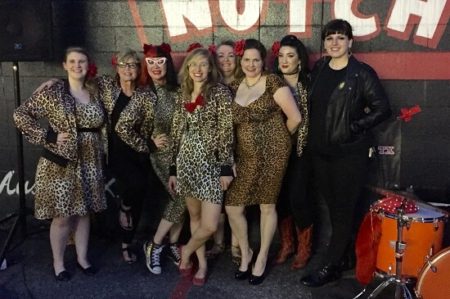

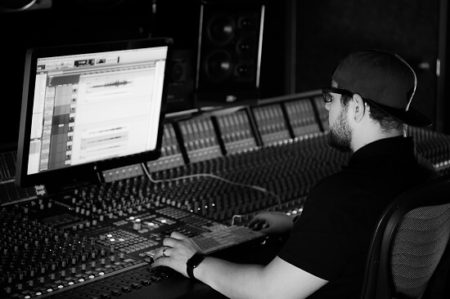
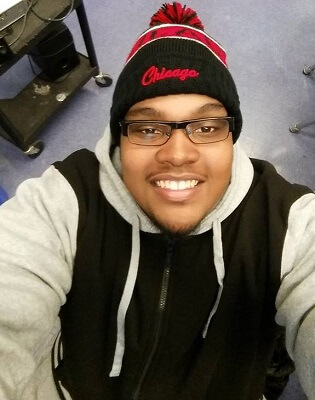 Film Connection student Derrick Turnage who externs with Patrick Wimp at Digital Hydra is gearing up to get in during festival season: “For these last couple months I’ve been super busy. A couple of weeks ago I was a Grip/PA for a couple days of pickup shots for a feature length film. Was honored to see how an actual set and its crew operate. I’m currently in the preproduction process for a short film I’m working on…My mentor has tasked us with getting a cast and crew and setting up our shoot…Next we’ll do some RED camera training and then host some auditions. We aim to start shooting early July, and submit this piece to multiple film festivals! Totally excited!”
Film Connection student Derrick Turnage who externs with Patrick Wimp at Digital Hydra is gearing up to get in during festival season: “For these last couple months I’ve been super busy. A couple of weeks ago I was a Grip/PA for a couple days of pickup shots for a feature length film. Was honored to see how an actual set and its crew operate. I’m currently in the preproduction process for a short film I’m working on…My mentor has tasked us with getting a cast and crew and setting up our shoot…Next we’ll do some RED camera training and then host some auditions. We aim to start shooting early July, and submit this piece to multiple film festivals! Totally excited!”
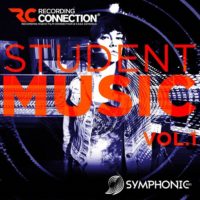 Heard our Student Music Mixtape yet? In partnership with Symphonic Distribution, we’re excited to help our students get their music out to the world!
The Recording Connection is now offering this great opportunity for our students to broaden their understanding of the new role digital distribution companies like Symphonic Distribution can play in helping release their tracks and propel their careers forward!
Heard our Student Music Mixtape yet? In partnership with Symphonic Distribution, we’re excited to help our students get their music out to the world!
The Recording Connection is now offering this great opportunity for our students to broaden their understanding of the new role digital distribution companies like Symphonic Distribution can play in helping release their tracks and propel their careers forward!



